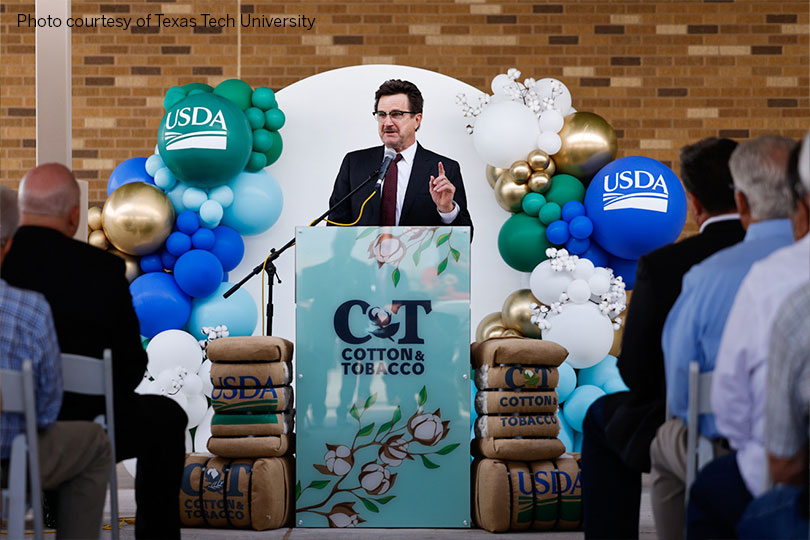Lubbock is now home to a new cotton classing facility on a university campus.
Texas Tech University and the U.S. Department of Agriculture (USDA) recently launched a first-of-its-kind cotton classing facility on Texas Tech’s campus.
The partnership will serve the U.S. cotton industry by grading almost 20% of the cotton produced in the country and offer internships and employment to Texas Tech students and others in the Lubbock area.
“Texas Tech is a world leader in cotton research, and this facility provides many opportunities for our faculty and students to advance the work that is of critical importance to this region,” Texas Tech President Lawrence Schovanec said. “We are proud to partner with the United States Department of Agriculture on this historic cotton classing facility, which will positively impact the cotton industry in West Texas and beyond.”
The 30,000-square-foot facility, located across the street from The Rawls Course, is equipped with the latest automated technology and represents the first cotton classing facility located on the campus of an institution of higher education.
Cotton classing facilities measure and classify cotton by its specific physical attributes, enabling the cotton to be marketed by producers and giving precise information to consumers regarding the cotton fibers.
The Cotton Classification Complex has the capacity to process more than 50,000 cotton samples per day and is among the largest cotton classing facilities in the nation.
According to USDA, the 10 cotton classing facilities across the country processed just over 17 million samples in 2021, and the new facility in Lubbock is expected to help boost that number.
Cotton classing facilities measure and classify cotton by its specific physical attributes, enabling the cotton to be marketed by producers and giving precise information to consumers regarding the cotton fibers.
The Cotton Classification Complex on Texas Tech’s campus will provide students and researchers with enhanced education and research opportunities in developing fiber measurement technology, automation and robotics, fiber phenomics, prototyping and calibration, and for testing of new instruments and technology.
Ground was broken on the facility in 2019, with construction on the project starting in 2020. Delays caused by the COVID-19 pandemic and supply chain issues slowed progress, but the new facility is now fully operational.

